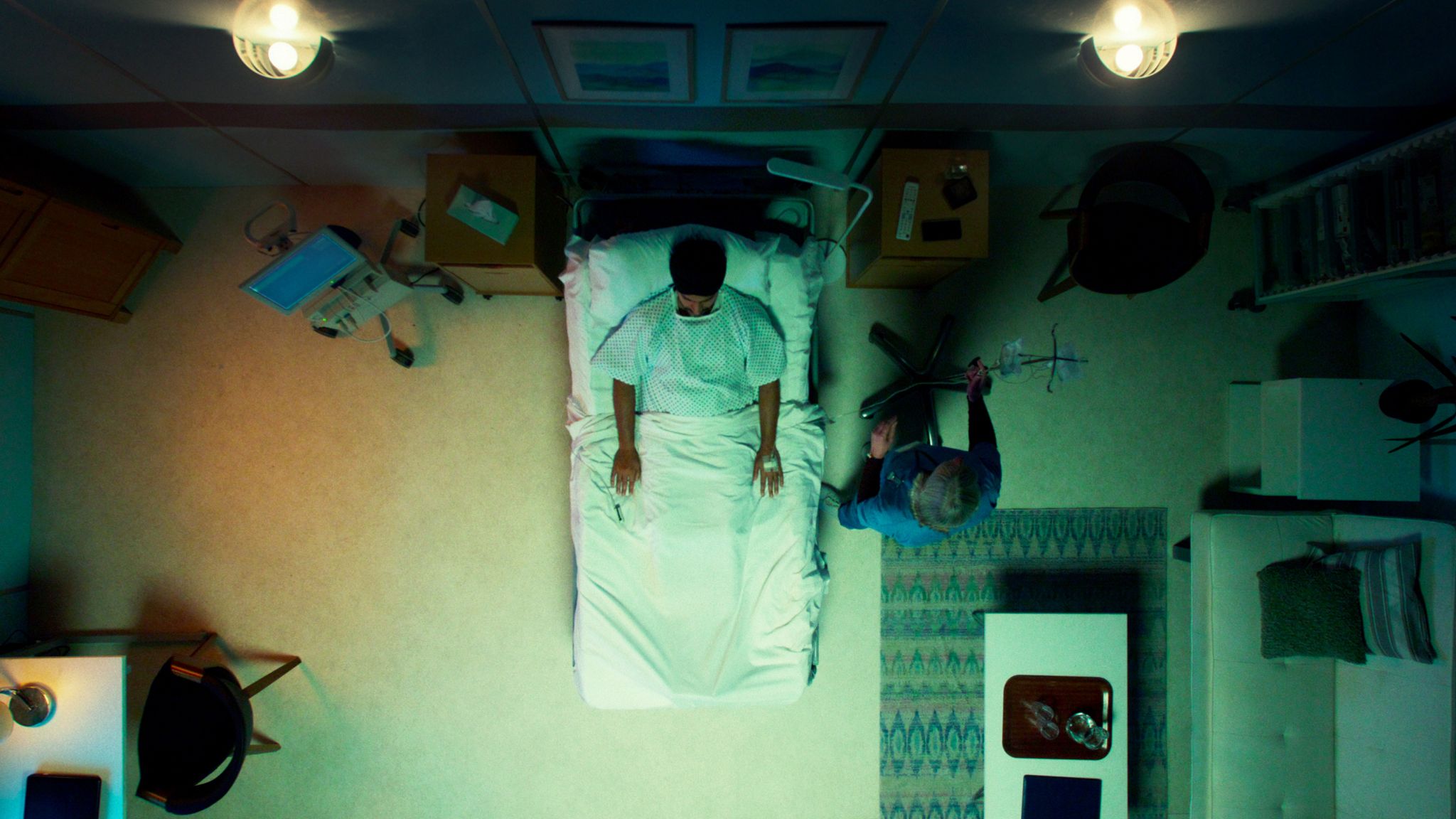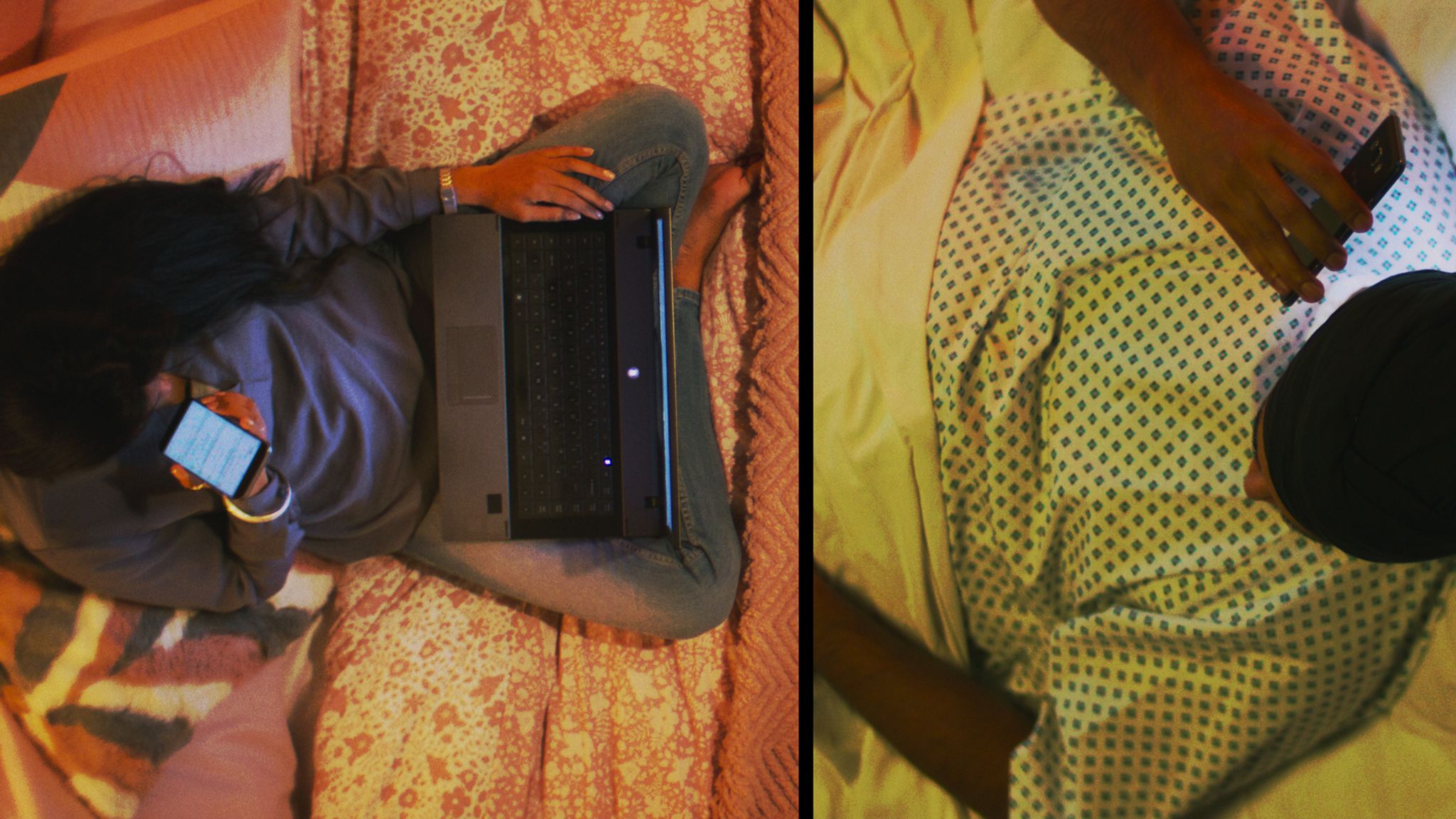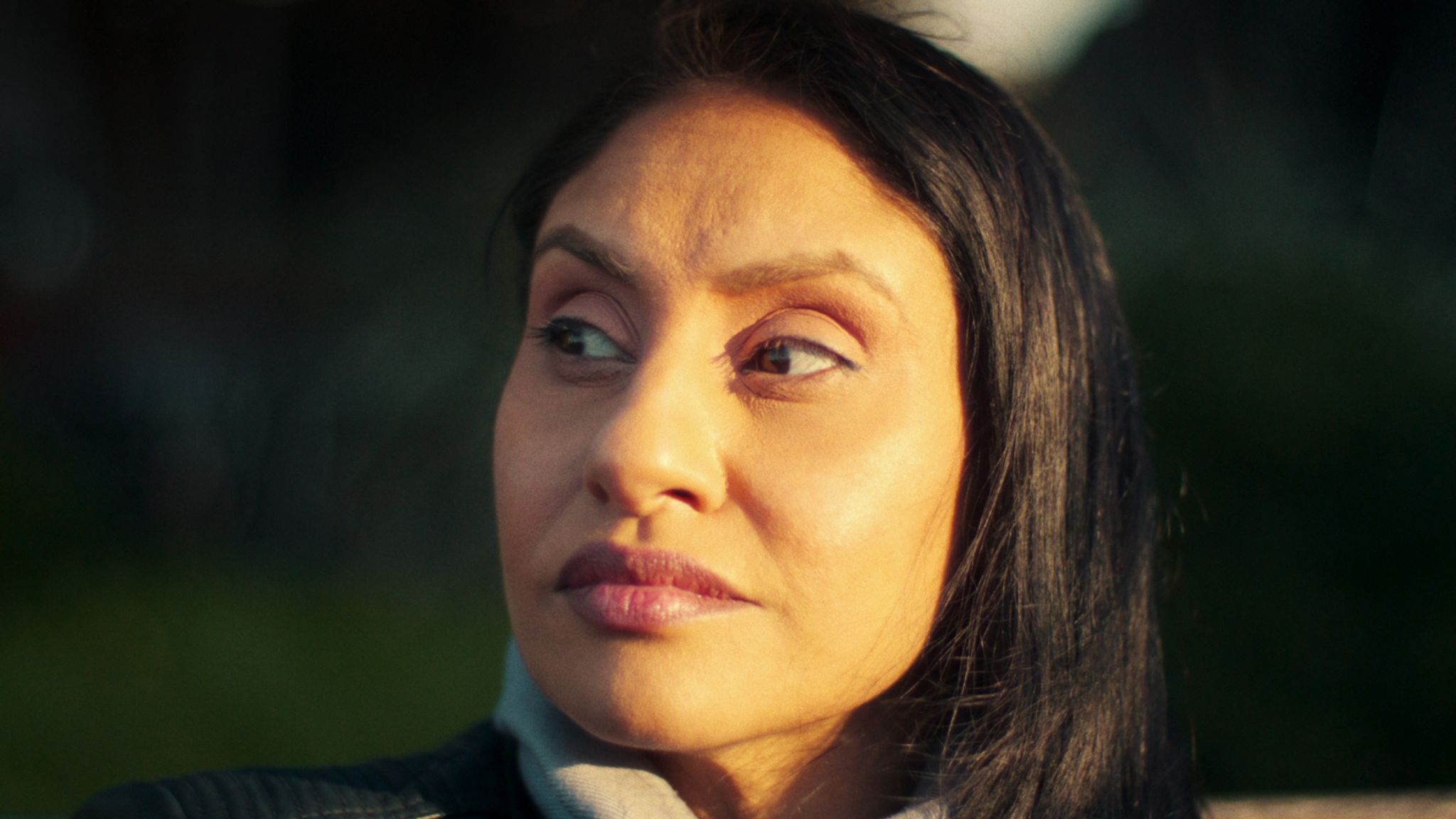The latest true crime documentary to hit our screens is described as “a fairytale romance gone horribly wrong”. It labels itself “one crazy story” in its opening scene.
But while Sweet Bobby: My Catfish Nightmare is a true story, the near-decade of deception, manipulation and coercion it depicts isn’t a crime.
Catfishing – the name given to using fake online profiles to trick others into believing they are in a relationship – is not illegal in the UK.
Kirat Assi, the subject of Netflix‘s Sweet Bobby documentary tells Sky News: “People say, ‘How can you be so stupid?’ That’s the constant question you get. But none of us [victims] are stupid. It’s just the perpetrator’s gone the extra mile.”
Thought to be the UK’s longest-known catfishing scam, it’s the story of Kirat, an events assistant and radio presenter, who was deceived into believing she was in an online relationship with a cardiologist called Dr Bobby Jandu between 2009 and 2018.
Using the identity of a real person who Kirat had once briefly met, the perpetrator spent years building up the fake friendship, with the relationship becoming romantic from late 2015. They even became engaged.
But nothing was what it seemed, and every interaction – with around 60 people in total across multiple social platforms – was all one of Kirat’s distant relatives.
Kirat admits she wasn’t keen for the first telling of the story via Tortoise Media’s podcast of the same name in 2021, let alone the documentary it’s now inspired.
So why is she allowing it to be shared with the world via the world’s largest streaming platform?
Now 44, Kirat says: “At the moment of her confession, I was screaming, ‘Why?’ But I’ve long ago let go of that… There’s just no reason to have done what she did. Now, I just need to know how she did it.”
How unlucky can one person be?
The documentary sets out how, during Kirat’s relationship with Bobby, he was shot six times in Kenya; put into witness protection in New York; suffered a stroke, brain tumour and heart attack; and fathered a secret child.
But while Kirat concedes she found it “strange”, “a bit weird”, and even asked herself “How unlucky can one person be?”, a circle of Bobby’s friends and family always validated the events in his life across numerous forms of social media.
The couple would Skype call all night and share voice notes and messages constantly.
Kirat is at pains to say it wasn’t a 10-year romance, and that initially she baulked at the idea due to their friendship being firmly in the “bro-zone”. But after years of persuasion, she says she finally gave in and they became a couple.
‘My life was hellish’
Towards the end of the relationship, Kirat says Bobby became controlling, accusing her of flirting with other men, and discouraging her from going to work or seeing friends and family.
She says that’s when things took a turn for the worse: “I started to lose weight… It was coercive control, to a point where you’re thoroughly being abused, where you don’t have any sense of yourself left anymore. And you’re just scared all the time.”
That’s when she hired a private detective, confronting the real-life Bobby on the doorstep of his family home in Brighton.
Kirat says: “I was just trying to find out the truth in that last period, but at the same time trying to keep the peace and not rock the boat because my life would be made hell. And it was hellish enough already.”
‘Victim shaming is dangerous’
Despite reporting it to police in 2018, no charge has ever been filed. The Met Police confirmed to Sky News that the case was closed in 2019 but has since been re-opened for reinvestigation.
A 2020 civil action, believed to be the UK’s first successful claim of its kind relating to catfishing – resulted in a private apology and substantial payout the following year.
Kirat hopes the documentary will inspire other victims of catfishing to speak out.
“There’s so much online abuse and bullying. There’s so much victim shaming, which stops people from speaking up… all of us have been suffering in silence.”
She says she’s received vicious abuse and trolling online since the podcast was released in 2021.
Kirat’s relative declined to be interviewed for the film, but her representatives told documentary producers: “This matter involves events that began when she was a schoolgirl. She considers it a private matter and strongly objects to what she describes as ‘numerous unfounded and damaging accusations’.”
‘I dare not speak for her’
She’s not seen her relative since the day she came to her home to confess the deception.
She admits she “dare not speak for her”, adding that there’s still fear in her close-knit London Sikh community about speaking out .
“I guess people are still scared of what she might do, even if the case is open. [People are afraid] because of the non-action from the police, the slow action from the police, the limited actions from the civil case. People just don’t have the faith that it’s been dealt with in order for them to speak up.”
But Kirat refuses to be silenced: “The person that did it needs to be held accountable. I can’t bear the brunt of being blamed for bringing it out in the open. I’ve had to do what’s right for me.”
‘People expect me to be a whimpering wreck’
Six years after her world fell apart, Kirat’s dating again.
She says she’s back to her “old fiery self”, admitting, when people realise who she is, they “have the shock of their life because they expect me to be a whimpering wreck”.
But parts of her life are still disrupted: “I have to be very careful about what I do and how I do it, who’s Googling me when it comes to work things.”
And with technology at our fingertips 24/7, Kirat has a word of warning: “It’s becoming easier to do it. The crazy things that AI and online can do now are just getting worse. I feel like I’ve had a lucky escape that it didn’t happen to me now.”
Sweet Bobby: My Catfish Nightmare is streaming on Netflix from Wednesday 16 October.
Source : Sky News
















